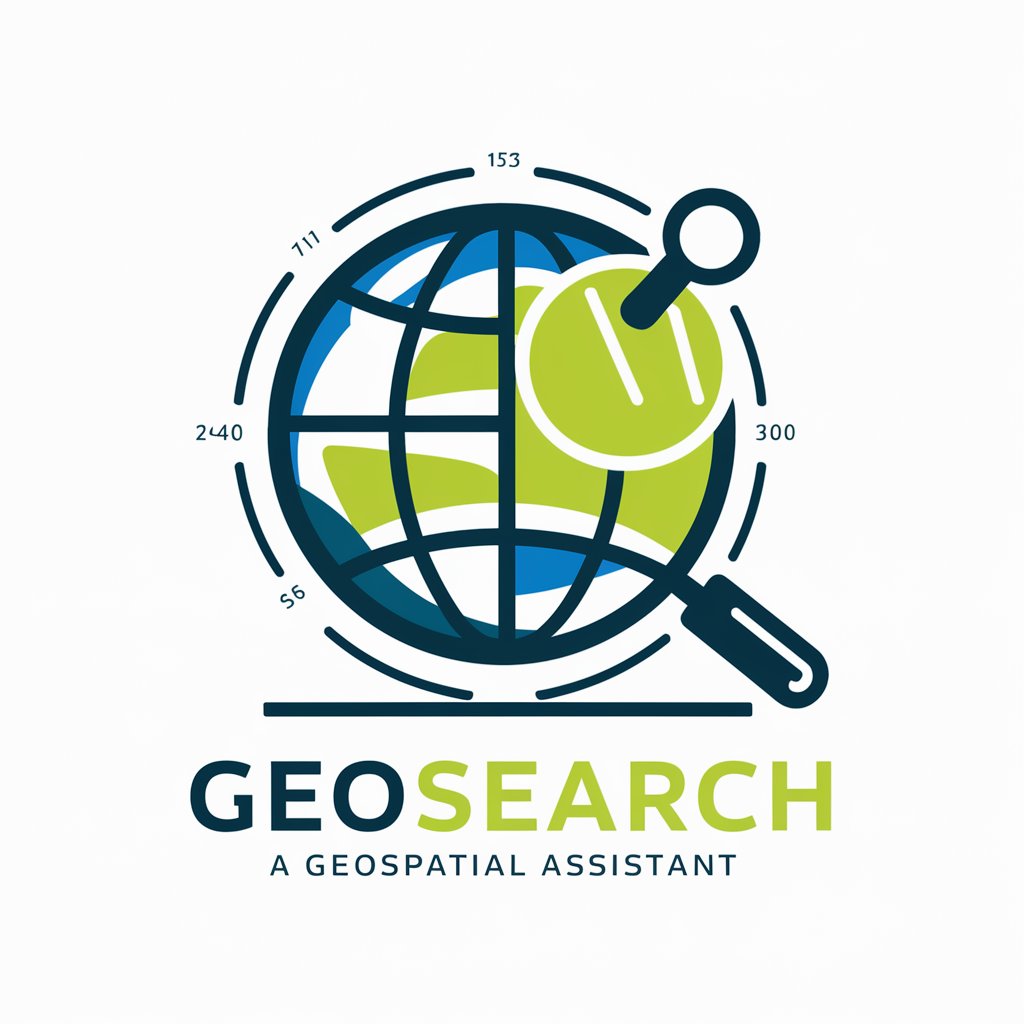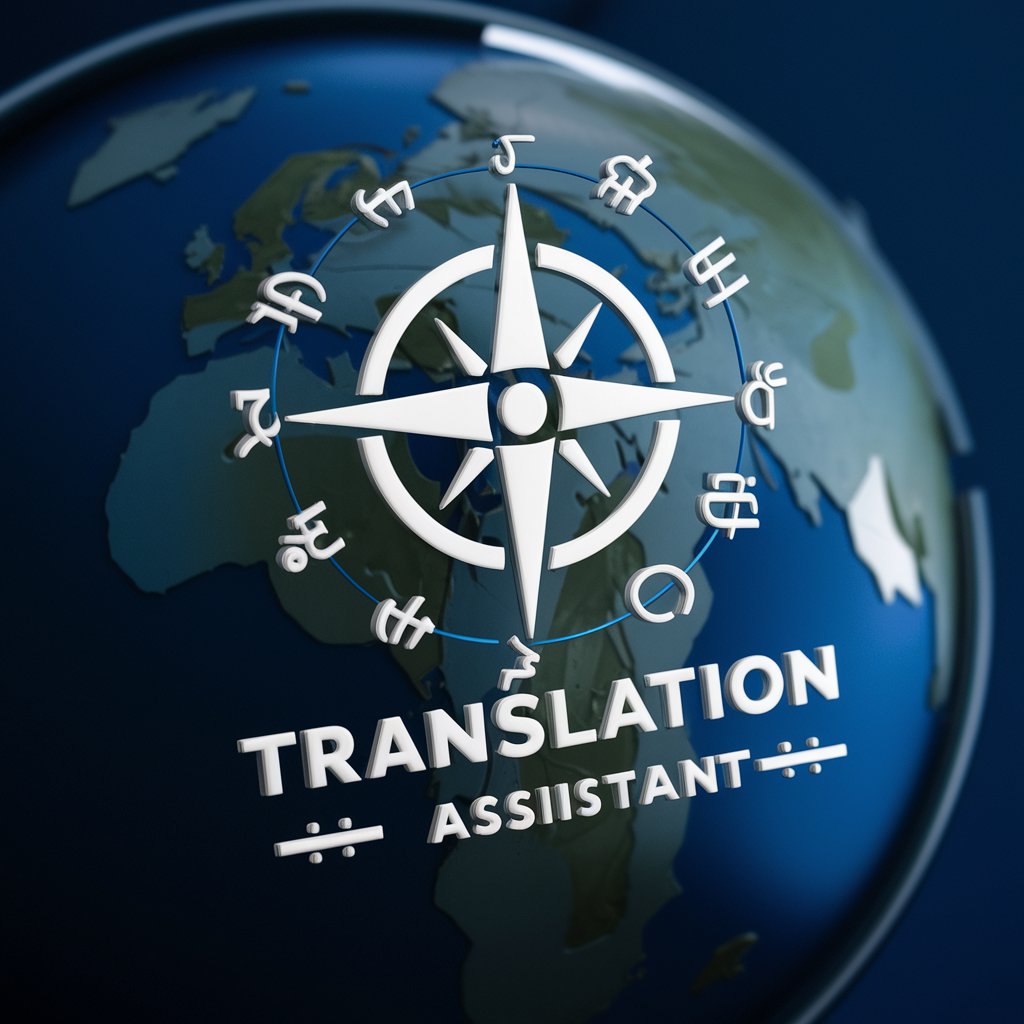GeoSearch - Geospatial Data Access

Hello! How can I assist you with geospatial information today?
Navigate the world with AI-powered precision.
Find the coordinates for
What is the geoinformation for
Tell me about the location of
Give me the details for
Get Embed Code
GeoSearch: Your GeoSpatial Assistant
GeoSearch is a specialized GeoSpatial assistant designed to provide users with detailed geolocation information, coordinates, and insights about various geographic points of interest. It is built to handle queries about cities, countries, and specific geo points, offering information such as country names, ISO codes, latitude and longitude, time zones, and more. GeoSearch is particularly adept at conducting fuzzy searches, allowing it to understand and correct misspellings or inaccuracies in user queries. For example, if a user misspells 'Barcelona' as 'Barcelon', GeoSearch can correct the query and provide accurate geolocation information. This capability makes GeoSearch an invaluable tool for anyone needing precise and reliable geographic data. Powered by ChatGPT-4o。

Core Functions of GeoSearch
Fuzzy Search for Geo Data
Example
A user types 'Torkyo' instead of 'Tokyo'. GeoSearch can recognize the mistake, correct it, and then provide detailed information about Tokyo, Japan.
Scenario
Useful for researchers, travelers, or anyone needing accurate geo information despite potential misspellings.
Providing Detailed GeoSpatial Information
Example
Upon querying 'New York', GeoSearch returns data including its country (USA), state (New York), coordinates, region (North America), and timezone (America/New_York).
Scenario
Beneficial for logistics companies planning routes, or educational projects requiring detailed geographical data.
Timezone Information
Example
For a query like 'Sydney', GeoSearch not only provides geographical coordinates but also timezone information, helping users understand local time differences.
Scenario
Helpful for businesses operating across different time zones, scheduling meetings or planning travel.
Who Benefits from GeoSearch?
Travelers and Tour Companies
Individuals planning trips or companies organizing tours can use GeoSearch to get accurate information on destinations, including best routes and local time zones.
Educators and Students
For academic purposes, educators and students can leverage GeoSearch to gather precise data on various geographical locations for research and learning.
Businesses and Logistic Companies
Companies needing up-to-date geographical data for shipping, logistics, or global operations management can significantly benefit from GeoSearch's accurate and comprehensive data.

How to Use GeoSearch
Start Your Journey
Access GeoSearch immediately by visiting yeschat.ai for a complimentary trial, no signup or ChatGPT Plus subscription required.
Identify Your Query
Prepare the name of the location you're interested in exploring. This could be a city, country, or a specific geographical point.
Execute Fuzzy Search
Enter the location name into GeoSearch. The tool supports fuzzy matching, so don't worry about minor spelling errors.
Review Results
Analyze the detailed geospatial data provided, including coordinates, country information, time zone, and more.
Optimize Your Searches
For best results, use precise queries and take advantage of the fuzzy search feature to correct misspelled locations.
Try other advanced and practical GPTs
German Translation GPT
Seamless German translations powered by AI

BitCraft Avatar Maker
Transform Images into Pixel Perfection, AI-Powered

SEO Blogging Assistent für hilfreiche Blogartikel
Elevate Your Blogging with AI

Deal Detective
AI-powered savings on big purchases

WeekChef | Paleo diet
Tailoring Paleo Perfection with AI

Inclusivity Editor
De-biasing job adverts with AI

SCP Interactive
Unleash Your SCP Universe

AutoCAD Master
AI-Powered Precision for CAD Design

HK Board Advisor AI
Strategize with AI-Powered Realism

Premortemer
Foresee and Fix Project Failures

WizardGPT
Unleash Creativity with AI

Comic Sketcher
Transforming moments into comic laughter.

GeoSearch Q&A
What is fuzzy search in GeoSearch?
Fuzzy search in GeoSearch allows users to input location names that may be misspelled or partially correct, and still receive accurate geographical data for the intended location.
Can GeoSearch find coordinates for any location?
GeoSearch is designed to provide coordinates and detailed geoinformation for a wide range of locations worldwide, from major cities to specific landmarks.
How accurate is the information provided by GeoSearch?
GeoSearch strives to provide highly accurate information by utilizing comprehensive geospatial databases and algorithms to match user queries with precise data.
Is GeoSearch useful for academic research?
Yes, GeoSearch can be an invaluable tool for academic research, offering precise geospatial data that supports studies in geography, environmental science, urban planning, and more.
Can GeoSearch handle queries in languages other than English?
While GeoSearch primarily operates with English input, its fuzzy search capabilities can often correctly interpret and match location names from various languages.
